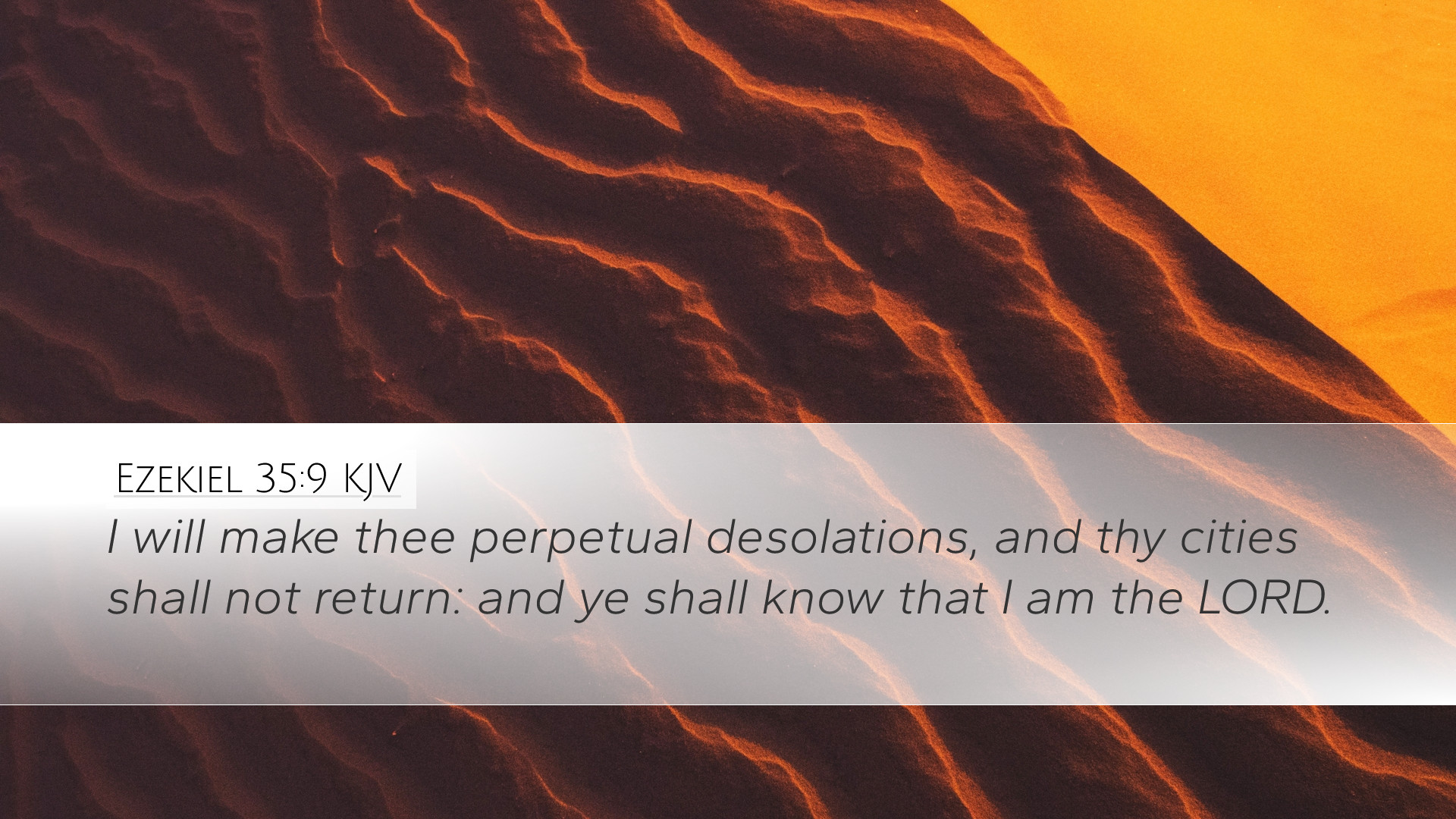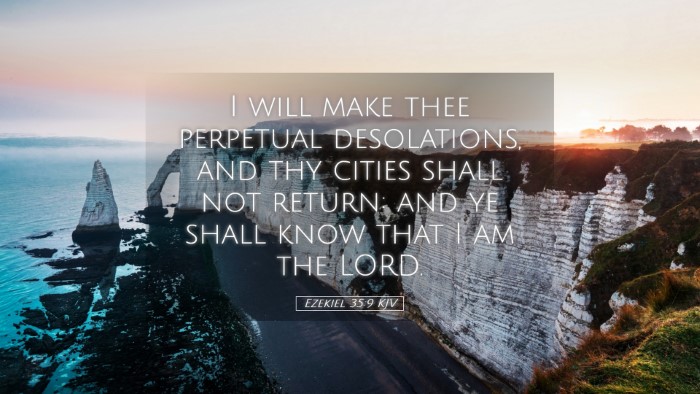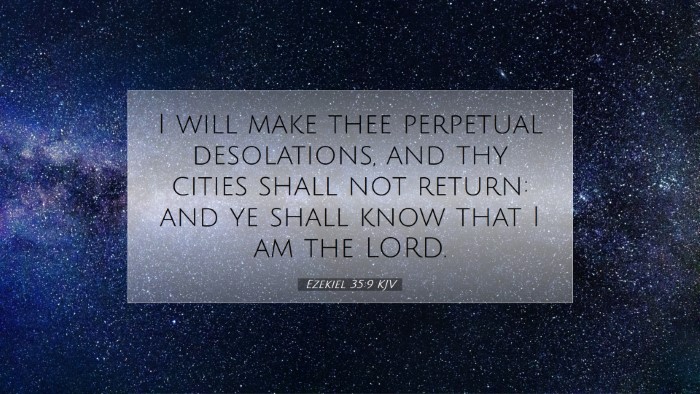Commentary on Ezekiel 35:9
Ezekiel 35:9 states, "I will make thee perpetual desolations, and thy cities shall not return: and ye shall know that I am the LORD." This verse is a part of God's judgment against Mount Seir and its inhabitants, symbolizing Edom in the broader context of biblical prophecy.
Contextual Overview
The prophecy given through Ezekiel to Mount Seir signifies a definitive act of God's vengeance against those who have acted against His people, particularly Israel. The chapter essentially communicates a declaration of desolation and abandonment as a punishment for the historical animosity shown by Edom towards Israel, especially during their times of calamity.
Insights from Public Domain Commentaries
Matthew Henry's Commentary
Matthew Henry emphasizes the seriousness of God's judgment against Edom. He points out that:
- The phrase "perpetual desolations" indicates a destruction that is absolute and enduring.
- Edom's cities, representing its social and political structures, will not be restored. This speaks to the complete and utter defeat that they will experience.
- Henry interprets this as a consequential act in the long-standing enmity that Edom had with Israel, noting how their historical actions have led to this prophetic denunciation.
Albert Barnes' Notes
Albert Barnes provides valuable insights into the implications of desolation for Mount Seir, highlighting that:
- The term "I will make thee perpetual desolations" serves to foreshadow the devastating consequences that arise from hostility against God's chosen people.
- Barnes explains that the destruction of Edom symbolizes a larger theme of divine justice, where nations that oppress God's people ultimately face judgment.
- He also reflects on the significance of knowing God, stating that through the judgment upon Edom, the nations will come to understand God's sovereignty and power.
Adam Clarke's Commentary
Adam Clarke presents a more theological perspective on the verse. He asserts that:
- Desolation is not merely physical but spiritual, implicating the state of Edom's soul and relationship with God.
- Clarke emphasizes the importance of prophetic declaration, arguing that God’s words hold weight and create reality. Thus, His promise of desolation will be fulfilled as an act of divine will.
- He also relates this verse to the New Testament concept of God’s ultimate triumph over evil, suggesting that all nations, like Edom, which stand against God’s purposes face inevitable judgment.
Theological Implications
The desolation of Mount Seir serves as a vivid reminder of God's judgment against nations and peoples who oppose His will. This has several implications for contemporary readers, especially pastors and theologians:
- Divine Justice: The permanence of God's judgment as illustrated here reflects His character as a just and righteous God.
- Historical Accountability: Nations that have historically denied God’s covenant or oppressed His people must contend with the consequences of those actions.
- Hope for the Faithful: Despite the harsh declarations, there is a glimmer of hope for those who remain faithful to God’s covenant, as they are assured of His protection and restoration.
Applications for Today's Believers
While Ezekiel 35:9 addresses historical events, its message is relevant for modern believers:
- Studying the motives and actions of others should compel Christians to live in harmony and obedience to God's commands.
- Believers should recognize the importance of standing with Israel and advocating for justice, reflecting God’s own heart for His people.
- This verse calls for self-examination regarding our attitudes towards others, especially those who may oppose us or cause us harm.
Conclusion
Ezekiel 35:9 serves not only as a historical prophetic declaration against Edom but also as a profound theological statement regarding God's justice and sovereignty. Acknowledging what has been articulated by Matthew Henry, Albert Barnes, and Adam Clarke provides depth to our understanding of divine judgment and the everlasting consequences of opposition to God.


